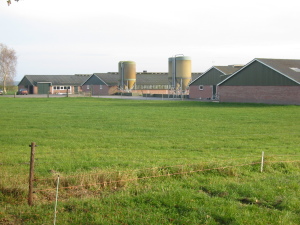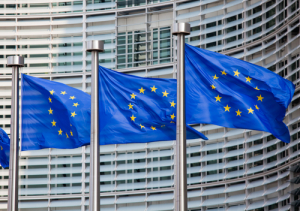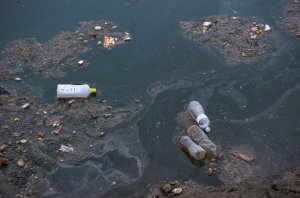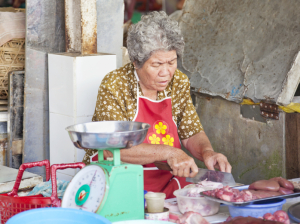Worldlog Settimana 48 – 2014
C’è stata un bruttissima notizia questa settimana. Sono state uccise quasi 200.000 galline a causa dell’influenza aviaria in un’azienda olandese. Il presente sistema di tenere tanti animali insieme, causa l’insorgenza di malattie animaleschi di questo tipo. Nel 2003 sono state uccise 40 milioni di galline a causa dell’influenza aviaria. Succede a tutte le specie di animali, se ne metti tanti insieme vengono fuori delle malattie. E’ ridicolo che solo tre comuni olandesi (Barneveld, Veenendaal e Ede) tengano dieci milioni di galline. Questo porta ad un costante rischio di una malattia imminente che insorge. Anche se gli abitanti sono molto preoccupati, continuano ad essere costruite delle nuove megastalle che funzionano come delle fabbriche di virus.
Una recente indagine ha dimostrato che gli uccelli migratori che passano per i Paesi Bassi, vengono spesso infettati dai virus. Questo è a contrario di quello che pensa la gente: che sarebbero questi uccelli a portarci le malattie. Tutto sommato ce n’era da discutere nella Camera. Purtroppo la mia proposta di un dibattito sull’argomento è stata nuovamente rifiutata. Ho comunque fatto delle domande alla Camera sulle garanzie relative al benessere degli animali durante il presente divieto di trasportarli, la sicurezza degli abitanti e anche l’utilizzo del CO2, che fa molto male agli animali, per uccidere le galline. L’uccisione con il CO2 significa spesso una morte lenta e sofferente per le galline.
Questa settimana ho proposto due mozioni sull’accordo tra la UE e gli Stati Uniti sull’importo libero (TTIP). Le mozioni chiedono ai nostri governi di insistere nella UE di finire le negoziazioni relative a questo accordo. Nel suo posto vogliamo una discussione con gli Stati Uniti su un’alternativa più sostenibile. Nel frattempo si sono organizzate ben 230 associazioni da un totale di 21 stati membri. Gli abitanti hanno fatto un’iniziativa raccogliendo oltre a 913.00 autografi.
Il mese scorso, la Commissione Europea ha fatto sapere agli organizzatori, che non riconosceranno questa iniziativa. Che peccato. Ho insistito con il governo olandese di richiederlo a Bruxelles. L’accordo ha degli effetti molto dannosi per l’ambiente, il benessere degli animali, i paesi in sviluppo e gli imprenditori europei. Speriamo quindi di riuscire a fermare questo tipo di accordo!
Una bella notizia! Il ventenne olandese Boyan Slat di Delft, ha vinto il premio per l’ambiente delle Nazioni Unite con la sua invenzione per pulire la cosìdetta “zuppa di plastica” (enorme quantità di plastica che si è negli anni accumulata negli oceani). Ha iniziato un’iniziativa di crowdfunding ed è riuscito tramite questo mezzo di raccogliere abbastanza fondi per testare un prototipo sempre più grande della sua istallazione. Boyan è il vincitore più giovane di questo premio nella storia. Congratulazioni!
Durante il dibattito sul programma finanziario per il Commercio Estero e la Collaborazione per i paesi di sviluppo, ho chiamato l’attenzione sul rapporto tra i problemi di sviluppo e i cambiamenti climatici. A causa del cambio climatico nell’Occidente, è a rischio la disponibilità del cibo, un fatto che colpisce soprattutto i paesi in via di sviluppo. Inoltre, il livello del mare che si continua ad alzare, porterà presto centinai di migliaia di rifugiati. Ho anche spiegato che i Paesi Bassi debbano produrre e consumare in un altro modo, come metodo di aiutare i paesi in via di sviluppo. Dobbiamo impegnarci per un commercio onesto, con della trasparenza relativa alla provenienza dei prodotti!
E’ disponibile un interessante filmino dell’economista famoso Rifkin. Vuole che finisca il consumo di carne esagerato e ritiene che la crisi economica non sia niente in confronto ai problemi che stanno ancora per arrivare. https://www.youtube.com/watch?v=m9wM-p8wTq4
Alla prossima settimana!
Terrible news this week. Almost 200,000 chickens in total at two poultry holdings were gassed due to an outbreak of bird flu. The current large-scale system is like a ticking time-bomb for unstoppable outbreaks of animal diseases. In 2003, 40 million chickens were gassed due to the bird flu. Diseases are bound to arise when living beings are kept so close together in one area. It is absolutely ridiculous that three small Dutch municipalities ( Barneveld, Veenendaal and Ede) together accommodate ten million chickens. It is causing a continuous threat of a contagious virus outbreak. And despite the fact that people living in the neighbourhood are seriously worried, more mega stables or virus factories are being built.
Recent research showed that migratory birds, which often serve as scapegoats for bird flu, are actually exposed to the virus in the Netherlands instead of bringing it here.
All in all, food enough for a debate in the House of Representatives. My request for one was unfortunately rejected. In my parliamentary questions I asked for clarification on the guarantee of the welfare of animals during the transport ban, the safety of people living in the neighbourhood and the application of highly animal unfriendly CO2 to kill chickens. Gasification with CO2 often means a slow painful death for the chickens.
This week, I submitted two motions regarding the Free Trade Agreement between the EU and the United States (TTIP). The motions request our government to call on the EU to end the negotiations on this agreement and to discuss a more sustainable alternative with the US. Meanwhile, more than 230 community organisations and citizens’ movements from 21 Member States have started a citizens’ initiative and have already collected more than 913,000 signatures. https://stop-ttip.org/ Last month, the European Commission informed the initiators that it will not acknowledge the citizens’ initiative. Shame on the EU. I called on the Dutch government to argue in favour for the initiative in Brussels. The Free Trade Agreement has very harmful effects on the environment, animal welfare, developing countries and European entrepreneurs. Hopefully we can stop these types of practices!
Great news! The 20-year-old Dutch Boyan Slat from Delft has won the UN Environmental Prize with his invention to remove plastic soup. Enough money has meanwhile been raised by a crowd fund campaign to test increasing prototypes of his installation system. Boyan is the youngest winner of this prize ever. Congratulations!
During the debate on the Foreign Trade and Development Cooperation budget, I pointed out the relation between development issues and climate change. The global food supply is threatened by the climate change that is caused by the West, which will hit the developing countries hardest. On top of that, the rising sea level will cause hundreds of thousands of climate refugees within no time at all. I further clarified that development aid from the Netherlands should in particular mean that we will start to produce and consume differently. We have to focus on fair trade, transparency with respect to the origin of the raw materials and regionalisation!
Here is a very interesting video of chief economist Rifkin. He advocates an end to the high meat consumption and says that the credit crisis is nothing compared to the problems that are still to come. https://www.youtube.com/watch?v=m9wM-p8wTq4
Until next week!



